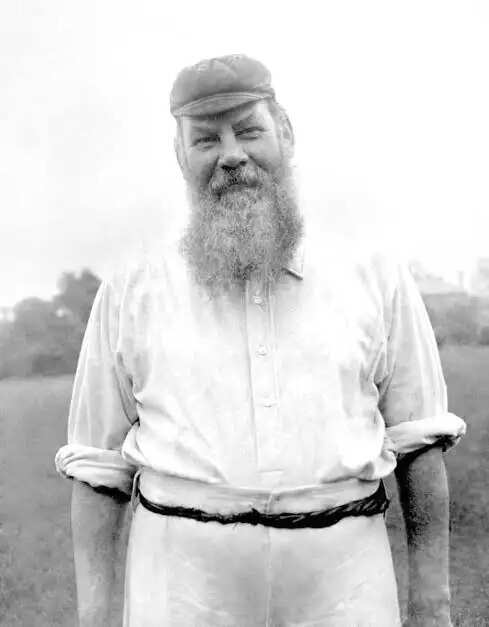Meet The Father Of Cricket
William Gilbert Grace (18 July 1848 – 23 October 1915), better known as W.G. Grace, is the "Father of Cricket" due to his colossal contribution to the game in its infancy. His playing career spanning from 1865 to 1908 not only made him one of the greats of his era but also popularized the game and shaped cricket into what it is today.
Early Life and Exposure to Cricket
His family introduced Grace to the sport of cricket at a very early age, and he started playing first-class cricket at the age of 16 in the year 1865, a development that set him on the rolling ball of success that made him the pillar of the game.
Batting Mastermind and Records

Grace's batting was revolutionary for his time. He combined power with accuracy, setting records like never before. In 1876, he had the incredible 344 for Marylebone Cricket Club (MCC) versus Kent, followed by 177 for Gloucestershire versus Nottinghamshire and 318 not out for Gloucestershire versus Yorkshire—all within a week. These performances demonstrated his control and endurance in the game.
All-Round Abilities
Besides his batting skills, Grace was also a consistent bowler and quick fielder. Overall ability made him utility gold to any team he played for, thus a cricket legend as well.
International Career and Influence
Grace's influence reached the global scene as well since he featured in the very first England-Australia matches. His participation in those matches not only brought a competitive touch but also brought the game into the spotlight, selling it and popularizing it.
Legacy and Honors
Grace's contribution to cricket is incalculable. His method of playing cricket ushered in modern methods and techniques. As a recognition of his achievement, he was elected into the ICC Cricket Hall of Fame posthumously in 2009 so that generations ahead of us will be encouraged by his legacy.
Cultural Significance
Grace's picture, overshadowed by his giant height and great beard, stretched beyond the cricket pitch. He was a cultural icon, embodying the spirit of the game. His influence spread beyond cricket, seeping into elements of British society and popular culture during his era.
Briefly, W.G. Grace's unique contribution to the sport of cricket has made him the "Father of Cricket." His legacy transcends records and statistics but is deeply rooted in the very nature of the game itself, shaping its evolution and long-standing popularity.








